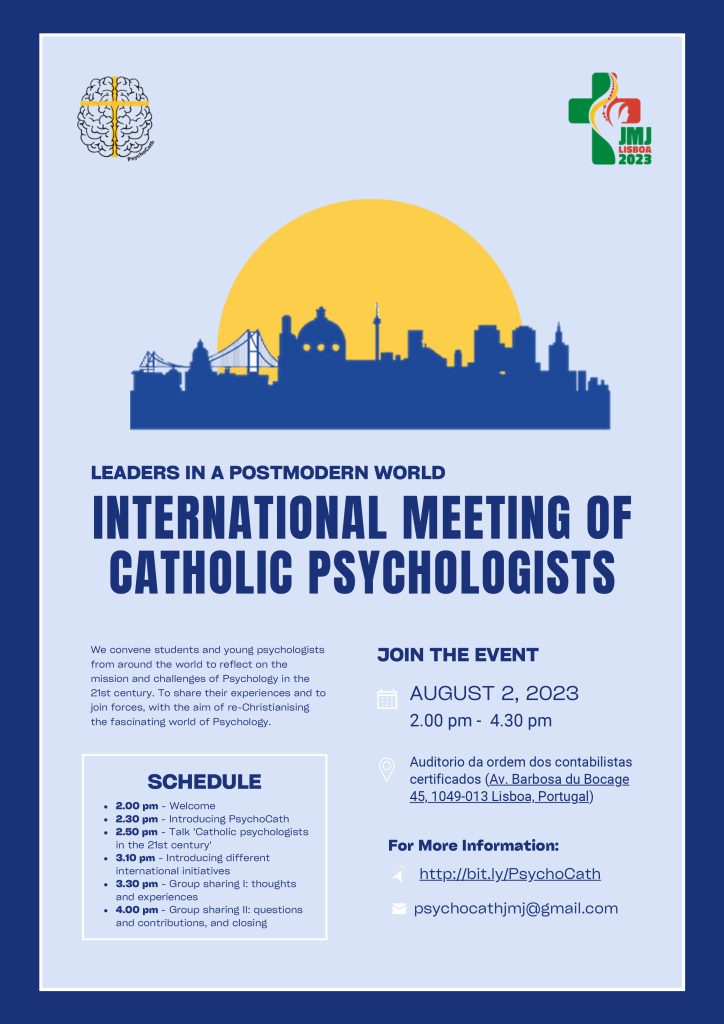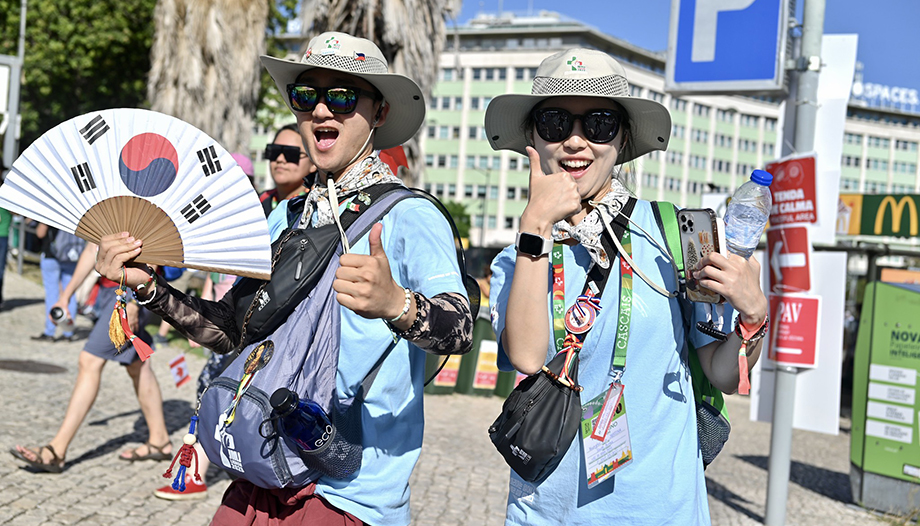Portugal is vibrating these days with hundreds of thousands of young people who, in a peaceful and joyful way, have taken to the streets and squares in a unique tide of songs, prayers and coexistence. It is the World Youth Day, which will have its climax on Saturday and Sunday with the central events in which Pope Francis, who is already on Portuguese soil, will be present.
In addition, this Wednesday, August 2, an interesting meeting will take place within the framework of this World Youth Day: PsychoCath. It is an initiative led by a group of young Catholic psychologists that aims to be a starting point to create a professional network of young psychologists to share activities or projects that are being carried out worldwide.
We have talked to them, from Omnes, to learn about this meeting, its objectives and the importance of taking care of the psychological and spiritual balance in a world marked by the
Why was this PsychoCath initiative created and what does it consist of?

-PsychoCath was born in the III Meeting of the Network of Psychotherapists of Catholic Inspiration that took place last March 24 and 25 in Madrid. It began with the proposal of Dr. Carlos Chiclana to the concern of some of the young psychologists who attended the meeting.
PsychoCath will be a meeting at WYD, but also the beginning of an international network of Catholic psychologists from all over the world. It will allow us to establish contact with other young psychologists from different countries, to create community and to remember our mission as Catholics.
It will also be a platform on which to publicize associations, activities or projects that are being carried out worldwide and that contribute to our personal and professional development.
Why did you choose the framework of WYD?
-WYD is the largest gathering of young Catholics worldwide, which fits with what we are looking for at PsychoCath: to meet and establish links with other Catholic psychologists from all over the world, who are finishing their studies or starting their working life.
It is also a moment in which the Pope reminds us of the importance of giving ourselves to the world from our Christian vocation, and in which we have to take advantage of it to take more strongly the responsibility that we are Catholic psychologists.
WYD is also an experience of the universal Church, promoting an encounter between the peoples of the world, so all young people go with the predisposition to build bridges with people from all countries.
The goal is not to have a perfect psyche, but to have the necessary resources to not collapse in times of difficulty.
Ursula.Psychologist and member of Psychocath
What can Christian vision and faith bring to the practice of psychology?
-The way of understanding life and the person has a very great impact on the way of understanding and practicing psychology. It is essential that Catholic psychologists start and build their professional competence on a solid foundation of Christian anthropology.
A Catholic psychologist looks at the person taking into account his or her intrinsic and unconditional dignity as a child of God. He understands that we are created for love and to love and from this framework he accompanies people. The starting point is that we are called to fulfill ourselves fully, to give ourselves to others, to live for something great, instead of seeking the mere well-being and stability of the person.
A Catholic psychologist has a broad and integrating outlook; he is aware that his science cannot pretend to embrace the whole mystery of the human being, but he can contribute from his humble profession. For this reason, he integrates the spiritual dimension in the experience of the person, and knows the importance of the link with God, the meaning of life, transcendence, etc.
In a society in which consultations and assistance to professionals are on the rise, how can we take care of our soul, our body and our psyche?
-First of all, we think it is important to be aware that we are a unit, so having a healthy psychology is part of a healthy lifestyle in general. That is, sleeping the necessary hours, having a good diet, cultivating satisfactory social relationships, practicing sports, etc.
Secondly, to know ourselves in order to know how we react in moments of increased stress and vulnerability. Realizing how things affect each of us and how we tend to respond to them is key to being able to set limits and protect ourselves from unnecessary demands or burdens imposed on us by society or even by ourselves. These limits would be, for example, not to work more than a certain number of hours, to allow ourselves to disconnect, not to attend to more than one task at a time?
In order to know ourselves, it is necessary to have time to stop and reflect on our life and what we really want, so that we can then move towards goals that are worthwhile and fill our existence with meaning.
Thus, the goal is not to have a perfect psyche, but to have the necessary resources to not collapse in times of difficulty and to be able to move forward. To know ourselves in order to know how to regulate ourselves and learn to ask for help before we reach the limit of our strength.








